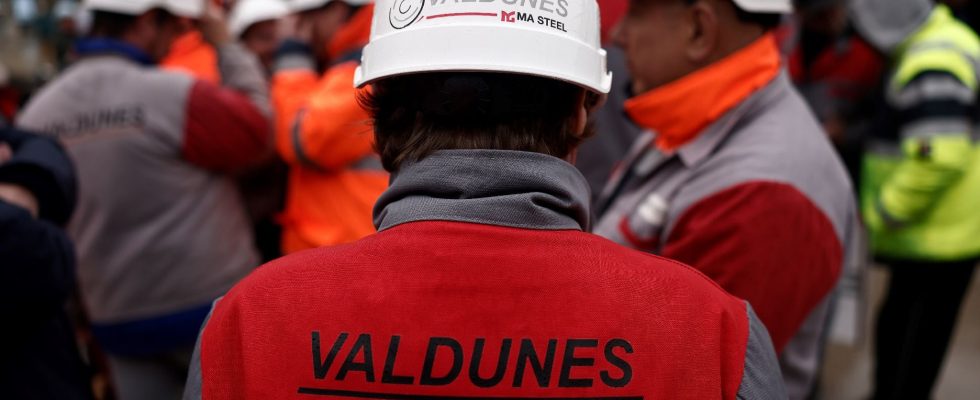The suspense was relative: there was only one buyer, endorsed by the public authorities. But as soon as the decision of the Lille commercial court was known, on March 20, Roland Lescure still uttered a big “Whew!”, summed up in the time-honoured expression that he posted on X: “Valdunes is saved”. Based in Valenciennes, this manufacturer of wheels and axles for trains had become, over the past year, the object of all political attention. Well beyond, in fact, its strategic importance for the country.
In May 2023, the Chinese shareholder of Valdunes, MA Steel, who had bought the company nine years earlier at the bar – already – in court, threw in the towel. All the local elected officials, from communists to ecologists, including La France insoumise, the National Rally, and even the LR boss of the Hauts-de-France region, Xavier Bertrand, then put pressure on the government so that the 330 employees, spread across two sites – a forge and a factory – do not end up in the dark. Through its newly elected general secretary, Sophie Binet, the CGT is calling for “nationalization, even temporary, while it takes time to find a solid buyer”. This general mobilization was quickly crowned with a first success: a few days after the withdrawal of MA Steel, Emmanuel Macron got involved in The voice of the North to “fight until the last quarter of an hour” to find a solution.
Many companies that have recently gone through receivership or liquidation, and which had as many, or even more, employees at risk, were not entitled to this Elysian favor. Camaïeu, San Marina, Pimkie… The list is long. Why the hell save Private Valdunes, and not the others? Because by hammering home his ambition to reindustrialize France, the President of the Republic has made himself accountable, incidentally, for the slightest factory closure.
SNCF and Alstom refused to take control
With the help of multi-party meetings, on-site visits and expert reports, Roland Lescure personally followed the file. Problem: neither SNCF nor Alstom, who know a little about railway equipment, wanted to take the helm. Not a good sign. As for Valdunes’ European competitors who studied the file, they also declined. Only one candidate was convinced by the State: Europlasma.
This small industrial group from Landes supplies various products linked to metallurgy, such as plasma torches – which allow extreme temperatures to be obtained – or very high purity aluminum sheets. Nothing remotely related to trains. Having itself come close to bankruptcy in 2019, it only owed its salvation to its takeover by a Luxembourg investment fund, itself financed by another fund registered in the Cayman Islands. Since then, Europlasma has lost an average of 10 million euros per year. We have known a whiter knight…
Lots of public money, and so much uncertainty
No matter: on the Valenciennes side, honor is safe. At least half. The recovery project preserves 60% of jobs. And if Europlasma promises to provide 15 million euros in equity over the next three years, the State undertakes to lend it the same sum, while the Region and local authorities add 5 million to the pot. A lot of public money, then. And so much uncertainty about the future.
Those around Roland Lescure say they are “vigilant but confident” about the Landes group’s ability to turn Valdunes around. An assurance which can be explained by the eye that Bercy and the Ministry of the Armed Forces are keeping on another activity recently acquired by Europlasma through the Forges de Tarbes: the manufacture of shells. More precisely, those of the Caesar cannons which are currently operating in Ukraine and which have earned the company more than 7 million euros in repayable public advances in 2022 and 2023.
Matchmaker, banker, privileged client, but not decision-maker at Europlasma. One foot in, one foot out. With Valdunes, the State is venturing into the shifting sands of a new concept: “soft nationalization”. The CGT dreamed of it, Bercy – almost – did it.
